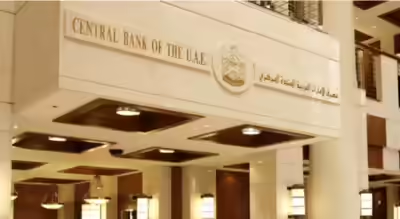In a bold move to uphold financial integrity and regulatory discipline, the UAE Central Bank has issued a fine of Dh3.5 million against a local bank while simultaneously suspending its ability to open new customer accounts. This decisive action follows confirmed violations of Sharia compliance and anti-money laundering (AML) laws — a rare but crucial intervention designed to reinforce transparency within the nation’s financial sector.
For the banking sector in the UAE, where trust, compliance, and reputation are invaluable currencies, this development sent ripples through boardrooms and financial institutions. It’s a reminder that even in one of the region’s most dynamic financial hubs, there is little tolerance for regulatory lapses.
What Led to the Fine?
At the heart of this matter is the bank’s failure to fully comply with the UAE’s stringent AML regulations and Sharia governance framework. The Central Bank’s investigation revealed a series of breaches related to customer due diligence, record keeping, and risk assessment obligations.

In an environment where financial crimes and illicit funds movement pose severe risks not only to economies but also to national security, these laws serve as vital safeguards. By failing to meet these requirements, the bank exposed itself to significant legal consequences and damaged its standing within the tightly regulated UAE banking ecosystem.
It’s not just about numbers or paperwork — it’s about protecting the country’s financial reputation and ensuring a safe, fair marketplace for residents and businesses alike.


A Firm Message to the Financial Sector
The Central Bank’s swift decision sends a strong message to the entire financial sector: non-compliance will be met with serious consequences. Regulatory authorities are not merely content with monitoring from a distance but are actively intervening to enforce standards and preserve financial integrity.
This case highlights how the UAE’s regulators are fully committed to aligning the country’s financial practices with international benchmarks. Especially in an era where the UAE continues to position itself as a global financial powerhouse, maintaining strict oversight is essential for long-term credibility.
For other banks and financial institutions operating in the UAE, this incident serves as both a cautionary tale and a timely wake-up call. The time for lax oversight or ambiguous internal controls is over.
What This Means for Customers
Naturally, the news has sparked concern among the affected bank’s clients. The Central Bank’s directive to suspend new customer accounts means that for the foreseeable future, the bank won’t be onboarding new individual or corporate clients until further notice.
Existing customers, however, can continue their normal banking operations — deposits, withdrawals, loans, and other services remain unaffected. This measured approach ensures that loyal account holders are not inconvenienced while the institution works on rectifying its internal procedures and compliance frameworks.
Nevertheless, the incident underscores the importance for customers to remain informed about their bank’s financial health and regulatory standing. Choosing a bank isn’t just about attractive interest rates or convenient branches — it’s also about knowing your money is held within a system that prioritizes ethics, compliance, and security.
Strengthening the Financial Landscape
This development also represents a broader effort by the UAE to solidify its status as a reliable, transparent financial hub. With increasing global scrutiny on financial jurisdictions and the ever-present threat of money laundering, proactive regulatory measures like this are crucial.
By publicly penalizing and restricting banks that fail to meet standards, the Central Bank reinforces the message that financial crime, in any form, will not be tolerated. It also assures global investors, foreign banks, and financial institutions that the UAE remains a place where fair business practices are the norm.
Such decisive governance also complements the country’s long-term vision, aligning with its goals for a digitally advanced, ethically sound, and internationally respected financial services sector.
A Human Story Behind The Numbers
Beyond the corporate and legal implications lies a human element to this story. Employees within the affected bank are now working under intense pressure, tasked with implementing urgent compliance upgrades, retraining staff, and restoring customer confidence.
For the compliance teams, this episode marks a pivotal moment in their careers — a chance to overhaul existing frameworks, strengthen internal protocols, and rebuild trust both internally and externally.
Meanwhile, customers are reassessing their loyalty, some weighing whether to continue their banking relationship or explore other options. Financial advisors are fielding more questions than usual, offering reassurances while providing alternative recommendations.
It’s a reminder that banking is ultimately about people — from frontline tellers to high-net-worth clients — and that trust is the most valuable currency in finance.

What’s Next for the Bank?
While the fine and account suspension are immediate measures, the road ahead for the bank will involve a detailed corrective action plan. This typically includes comprehensive audits, revised operational procedures, enhanced risk management controls, and an overhaul of internal training programs.
The bank’s senior management will also be expected to demonstrate clear accountability, outlining steps taken to address the identified gaps and prevent future lapses.
The Central Bank is likely to conduct follow-up assessments in the coming months, ensuring that every corrective measure is not just promised, but effectively implemented.
The Bigger Picture: Financial Compliance in the UAE
This incident adds to a growing list of high-profile regulatory actions in the region, as Middle Eastern financial hubs increasingly prioritise AML laws and corporate governance. The UAE, in particular, has made it clear that while it welcomes global investors and financial innovation, these must operate within a well-regulated, transparent environment.
From real estate to fintech, and traditional banking to cryptocurrency exchanges, every financial sector player is under greater scrutiny. The message is consistent: the UAE’s financial markets will be clean, ethical, and reliable.
A Case Study for Future Generations
For students of finance, compliance officers, and business leaders, this case offers valuable lessons. It demonstrates the real-world consequences of regulatory negligence, the importance of ethical business practices, and the role of proactive governance in sustaining financial markets.
It also shows how swiftly things can change for a business operating within a highly regulated sector. A single lapse — or series of minor oversights — can cascade into multimillion-dirham penalties, operational restrictions, and reputational damage that takes years to repair.
It’s a vivid, real-time case study in how regulations are not mere formalities, but essential guardrails for the integrity of entire economies.

Conclusion: Turning Crisis Into Opportunity
While this episode undoubtedly marks a difficult chapter for the affected bank, it also offers an opportunity for transformation. By tackling compliance failures head-on, rebuilding operational integrity, and reinforcing customer trust, the institution can potentially emerge stronger.
For the UAE’s financial sector, this incident reflects a healthy, maturing ecosystem where accountability and ethics are increasingly non-negotiable.
In the long run, such decisive regulatory actions build confidence — not only among international investors but also among residents and businesses who rely daily on a robust, fair, and transparent banking system.
It’s a clear sign that in the UAE, financial discipline isn’t just expected — it’s demanded.
Do follow UAE Stories on Instagram
Dubai’s Omining Unveils First African Site in Kenya’s Special Economic Zone












